Cooke, Charles Edwin
Regiment: British South Africa Police
Rank: Sergeant
Service No: 136
Boer War service: Not known
Date of enlistment: Not known
Date of discharge: Not known
Reason for discharge: Not known
Other information:
Awards
Queen's South Africa Medal
Relief of Mafeking
Rhodesia
Born: ...
Read More
Author: Judith
Connor, Arthur James
Connor, Arthur James
Regiment: 2nd Battalion King's Shropshire Light Infantry
Rank: Private
Service No: 7290
Boer War service: Mar 1900 to April 1901
Date of enlistment: Mar 1900
Date of discharge: 17 Apr 1901 on his death
Reason for discharge: Died from sickness
Other information: Joined Whitchurch Volunteers (local milit...
Read More
Royal Fusiliers
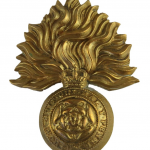
This unit became the city regiment for London in the 1881 Army reorganisation. The 2nd Battalion served in the Boer War.
The names of the men who served in the regiment are listed below
Read More
Royal Army Service Corps
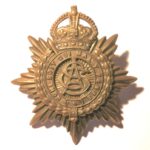
The Royal Army Service Corps was responsible for supply and transport and it was their role to keep the army supplied with provisions during the war.
The names of the men who served in the regiment are listed below
Read More
Durham Light Infantry
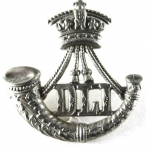
The 1st Battalion sailed on the Cephalonia on 24th October 1899, arrived at the Cape about 18th November, and was sent round to Durban. The following February they stormed Vaal Krantz, coming under heavy fire. After the battalion entered the Transvaal they were chiefly employed on the Natal-Pretoria Railway, and in column work from the railway line towards the Orange River Colony.
The names of the men who served in the regiment are listed below
Read More
East Yorkshire Regiment
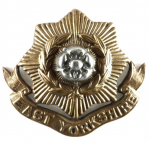
The 2nd Battalion arrived at the Cape on 3rd April. Along with the 2nd Grenadier Guards, 2nd Scots Guards, and 1st Leinster Regiment, they formed the 16th Brigade and part of the VIIth Division. The East Yorkshire Regiment were present in the action at Biddulphsberg on 29th May 1900, but their losses were not severe. The battalion operated in the north-east of the Orange River Colony practically all the time they were in the campaign.
The names of the men who served in the regiment a...
Read More
Royal Army Medical Corps
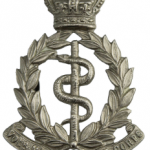
Until 1898 the Medical Staff Corps and the Medical Staff were two separate organisations. They were reorganised into one Corps, the Royal Army Medical Corps on 23rd June 1898. With the formation of the RAMC medical officers were granted the same rank structure as the rest of the British Army and assumed full executive and administrative responsibility. Only one year after its formation the RAMC was fully committed in the Anglo-Boer War.
The names of the men who served in the regiment ar...
Read More
Royal Welsh Fusiliers
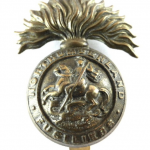
Until 1881 this regiment was known as The Royal Welch Fusiliers. It recruited mainly from Caernarvonshire, Denbighshire, Flintshire, Merionethshire and Anglesey. The 1st Battalion fought in the Boer War.
The names of the men who served in the regiment are listed below
Read More
Imperial Yeomanry

The Imperial Yeomanry was a British volunteer cavalry regiment created on 24 December 1899. The first contingent of recruits contained 550 officers, 10371 men with 20 battalions and four companies, which arrived in South Africa between February and April, 1900. Upon arrival, the regiment was sent throughout the zone of operations.
A Royal Warrant asked standing Yeomanry regiments to provide service companies of approximately 115 men each. This new Imperial Yeomanry were to be raised on ...
Read More
Clay, Frank
Clay, Frank
Regiment: Imperial Yeomanry (13th Battalion)
Rank: Shoeing Smith
Service No: 1328
Boer War service: 2 Feb 1900 to 10 Jun 1901
Date of enlistment: 4 Jan 1900
Date of discharge: 18 Jun 1901
Reason for discharge: Termination of limited engagement
Other information:
Awards
Qu...
Read More